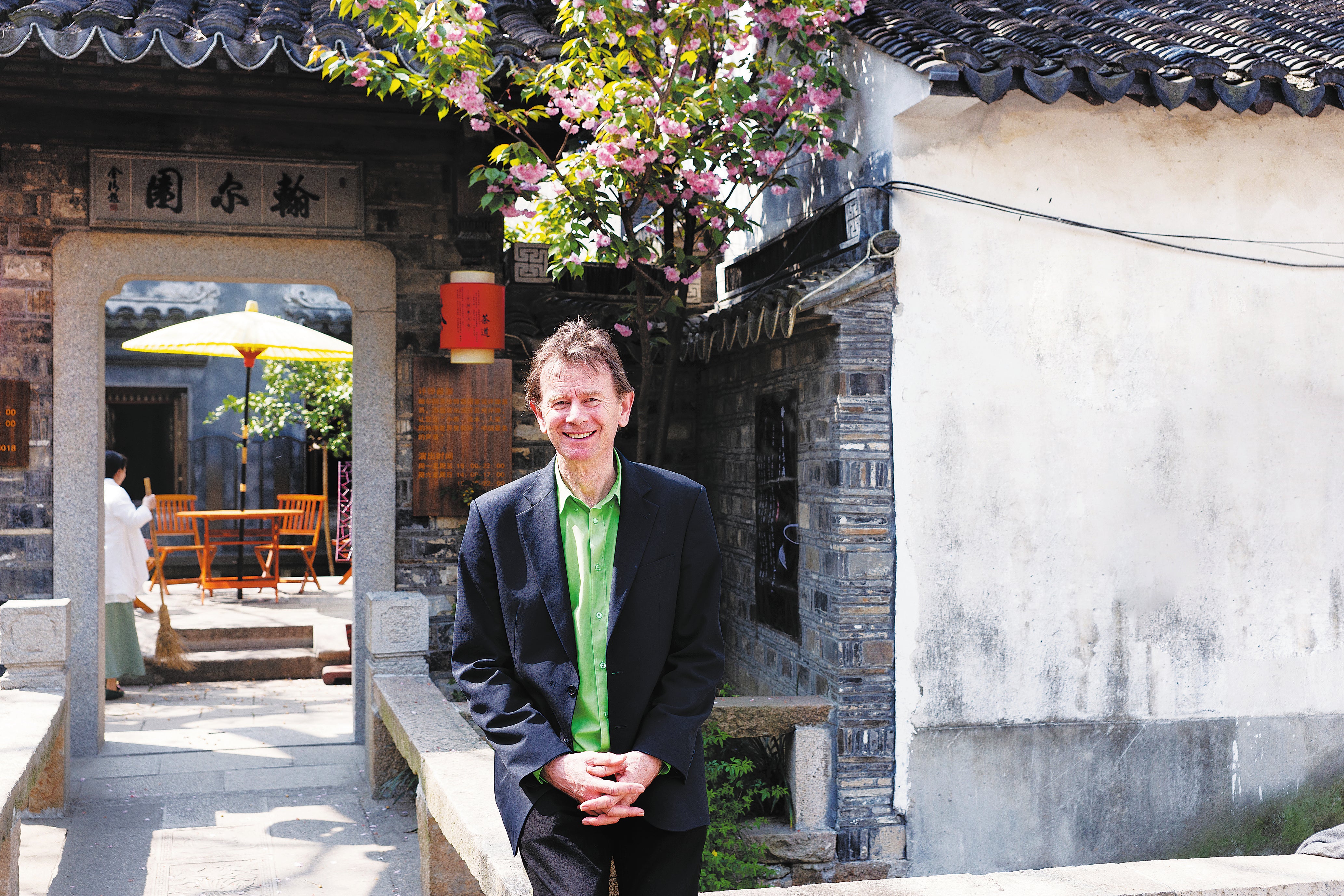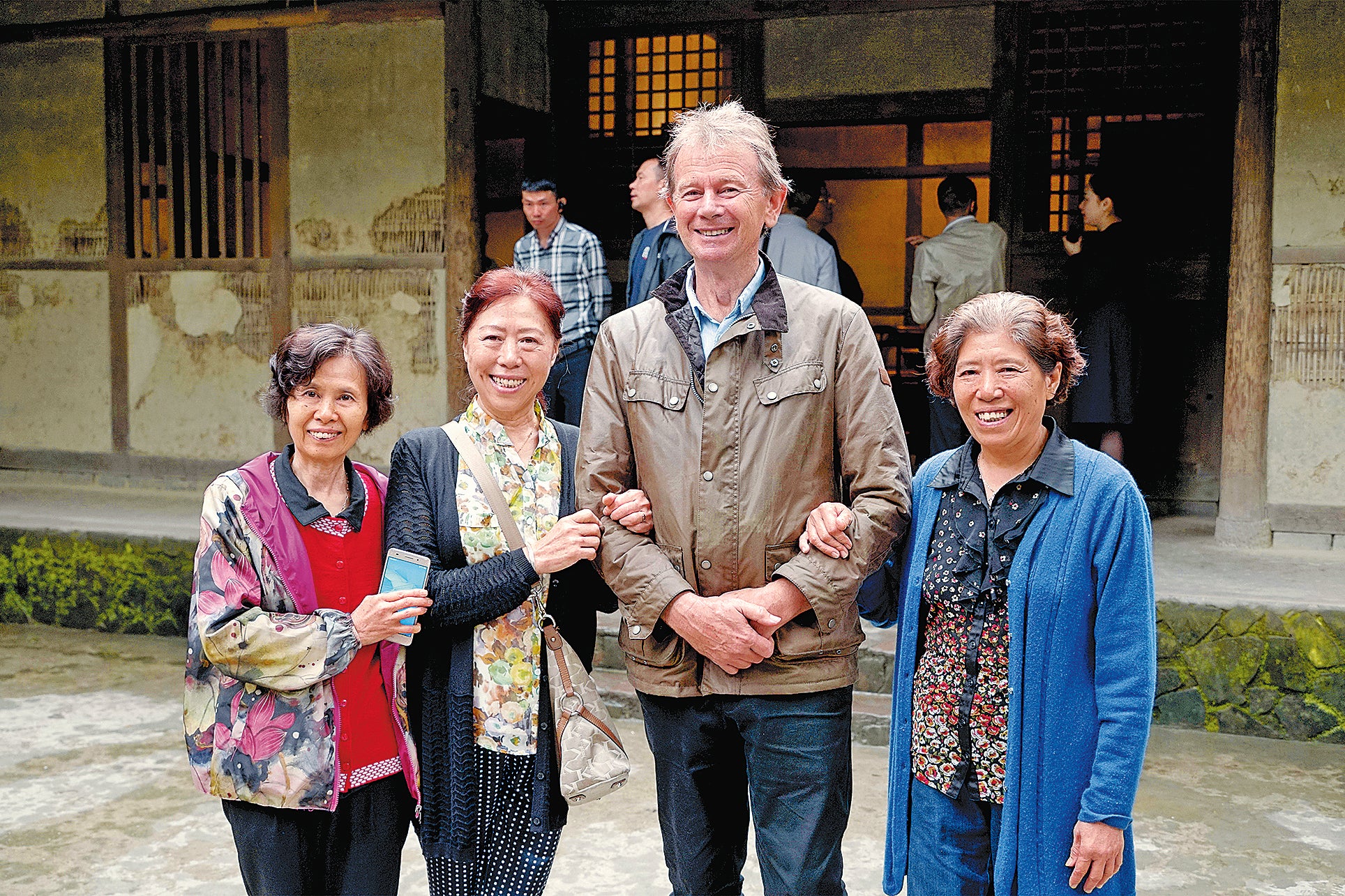Following in Du Fu’s footsteps
THE ARTICLES ON THESE PAGES ARE PRODUCED BY CHINA DAILY, WHICH TAKES SOLE RESPONSIBILITY FOR THE CONTENTS

Since the late 1970s, British historian, author and broadcaster Michael Wood has been travelling the world, sharing his passion for history and the stories of civilisations and kingdoms across the globe.
He has written more than 120 documentaries, which have been shown in 140 countries and territories, but one of his most enduring fascinations, both professionally and personally, is with China.
In 2016, Wood presented a series called The Story of China, and in 2020, he made a documentary about the man who first inspired his love of the country, the 8th-century poet Du Fu.
The film, Du Fu: China’s Greatest Poet, has now inspired a book, In the Footsteps of Du Fu, recounting Wood’s travels while making it. He said it was a journey he was more than happy to retrace with viewers and readers, to enlighten them about his passion for Chinese culture.
“We know so little in general in our culture about China — it’s not the only knowledge gap, but it’s a particularly obvious one, and that’s a real loss,” he said.
For Wood, his portal to a lifelong love of things Chinese was a paperback book.
“In 1960s Manchester, China seemed distant and exotic, but my first serious encounter with Chinese culture was the New Penguin translation of Poems of the Late Tang by Arthur Graham. It was a brilliant book, I was captivated by it,” he said.
Later, when he was doing his postgraduate studies at the University of Oxford, Wood shared a house with a sinologist who used to put books his way, which gave him a wider conversance with Chinese literature.
Once Wood talked to a house guest and asked him what he did. It turned out he was David Hawkes, who had been a professor of Chinese at Oxford but gave it up to translate what he called the novel of the millennium — The Dream of the Red Chamber by Cao Xueqin.
“He’d also produced a book called A Little Primer of Du Fu, which contained about 30 poems that you first saw in Chinese, then in transliteration, then literal translation, then a literary one, with an analysis of each, which was amazing.
“We all have encounters with books that open a window onto a world you never dreamed of, and that was one for me. I used to carry it around on foreign trips, and later I gave copies to other friends. It was a book I treasured.”
In his Du Fu documentary, Wood said: “For the Chinese people, poets have been the ones who most truly express the feelings of the people.”

In the film, Wood visits the Thatched Cottage Museum on the outskirts of Chengdu, Sichuan province, where devotees honour the memory of Du Fu, and he speaks to many people to find out what it is about Du Fu’s work that still has such an emotional pull.
“Lots of people go there, and talking to them you get a sense of how traditional Chinese people still value him hugely. They all say there are a great many qualities to his poetry, but his great strength is that it’s with the ordinary people that he really endures.”
Wood’s films have been screened in China, where he said audiences were intrigued and very receptive to see his outsider’s view of their own culture and history.
“I’m trying to extend knowledge of China in a sympathetic way, so when we sat down to start planning The Story of China, I said to the team that the key thing was that there should be empathy — I wanted viewers all over the world to think that they would like to be there with us. That’s the most important thing, everything else will just follow,” he said.
Wood said he has many China-related projects he would like to explore further.
The Story of China series only briefly touched on the 20th century, so he would also love to do something about the history of modern China, he said.
